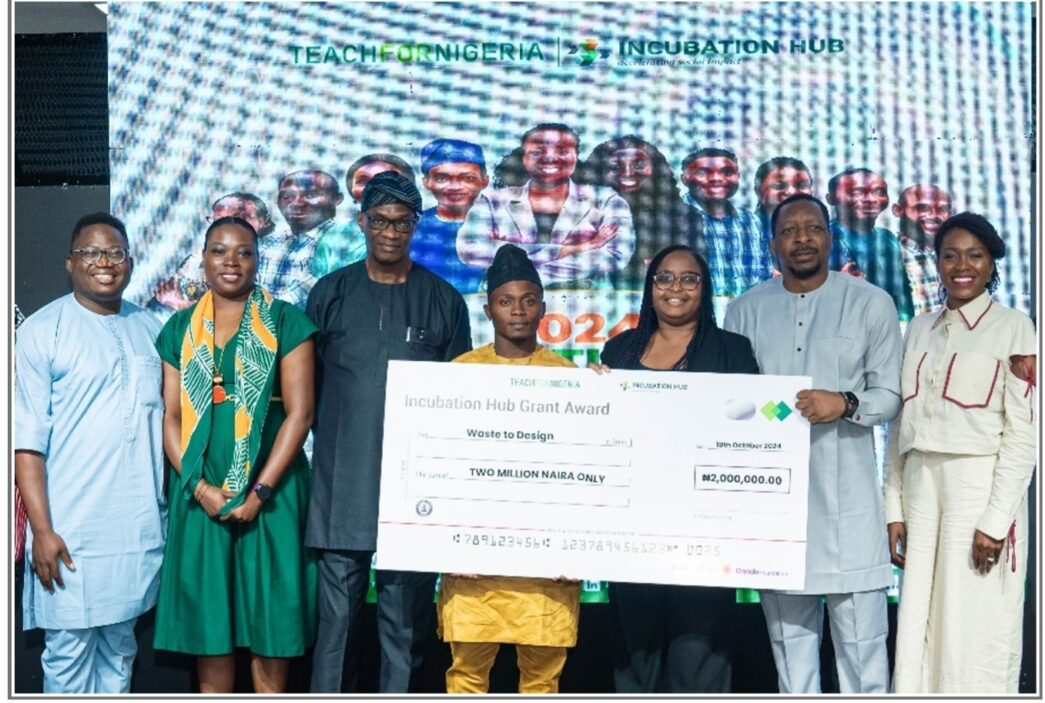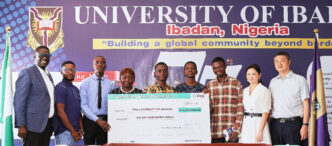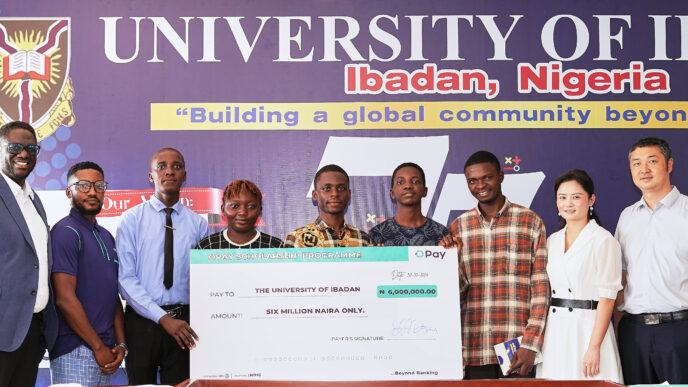Nigeria, with a rapidly growing population of over 229 million people, faces a confluence of critical challenges including educational inequity, climate change, and environmental degradation. According to UNICEF, about 10.5 million children in Nigeria are out of school, while those attending often grapple with inadequate learning materials and environments that stifle their potential. At the same time, the country faces an overwhelming plastic waste problem, with an estimated 2.5 million tons generated annually, and only 12% of that being recycled.
These issues, seemingly complex, separate, and multifaceted—education inequality and environmental pollution—are, in fact, deeply interconnected. Poor educational infrastructure often leads to a lack of awareness about environmental stewardship, perpetuating cycles of waste and pollution. Additionally, environmental degradation impacts children’s health and learning conditions, as exposure to polluted environments can hinder cognitive development and academic performance.
Recognizing the urgent need for integrated solutions, the Oando Foundation has taken a leading role in addressing both educational inequity and environmental challenges in Nigeria. For over a decade, Oando Foundation has leveraged strategic partnerships to improve access and quality of basic education for children in underserved communities through its Adopt-a-School Initiative. With a focus on teacher capacity development, infrastructural development, early childhood care and development, ICT, girl child education and the mobilization of out-of-school children, the Foundation has impacted over a million lives and their communities through this initiative.
Their current LEARNOVATE strategy is centered around improving foundational learning through innovative approaches and promoting sustainability within educational systems. A key component, ‘PLANET,’ focuses on the promotion of environmental education, green skills development, and waste management initiatives at the basic education level. By equipping pupils, teachers, and communities with knowledge on sustainable practices, LEARNOVATE aims to create environmentally conscious future leaders while enhancing educational outcomes. This strategy aligns with broader goals of sustainable development, specifically SDG 4 (Quality Education) and SDG 13 (Climate Action), as it empowers young learners to contribute to both educational advancement and environmental stewardship.
Aware of Oando Foundation’s reputation as an organization that believes in the transformative power of education and the potential of innovative approaches towards addressing educational and environmental challenges, Teach for Nigeria sought to partner with the Foundation for the successful actualization of their incubation hub program. The 3-month intensive program supports startups in Edtech, educational workforce development, climate change and environment, foundational education, and diversity, equity, and inclusion. Through the program, the startups are provided with the funds, tools, and infrastructure they would require growing optimally and contributing significantly towards improving education in Nigeria. The Incubation Hub also provides them with opportunities for mentorship and networking with industry experts, including members of the Foundation.
Oando Foundation, seeing value in the Incubation Hub’s vision, partnered with Teach for Nigeria on both the 3rd and 4th editions of the program. This partnership goes beyond financial support — it focuses on equipping young innovators with the tools, mentorship, and networks they need to create lasting solutions. Through the Incubation Bootcamp, representatives from the Foundation connected with the entrepreneurs on their projects and shared insights on their journey as a foundation. The Foundation’s Programmes Manager, Tonia Uduimoh, will personally mentor one of the participants for three months, guiding their growth and development.
10 out of 20 promising innovators advanced to the Incubation Hub pitch competition finale where only one winner emerged with their Edtech innovation/Climate solution and received a seed grant of two million naira (₦2,000,000) to scale their intervention, courtesy of Oando Foundation. This year, Collins Odike Nnabuike emerged as the winner for his visionary initiative, Waste to Design. With the ₦2 million grant, his project tackles two of Nigeria’s most urgent issues—environmental pollution and inadequate educational resources—by transforming plastic waste into high-quality instructional materials for underserved schools.
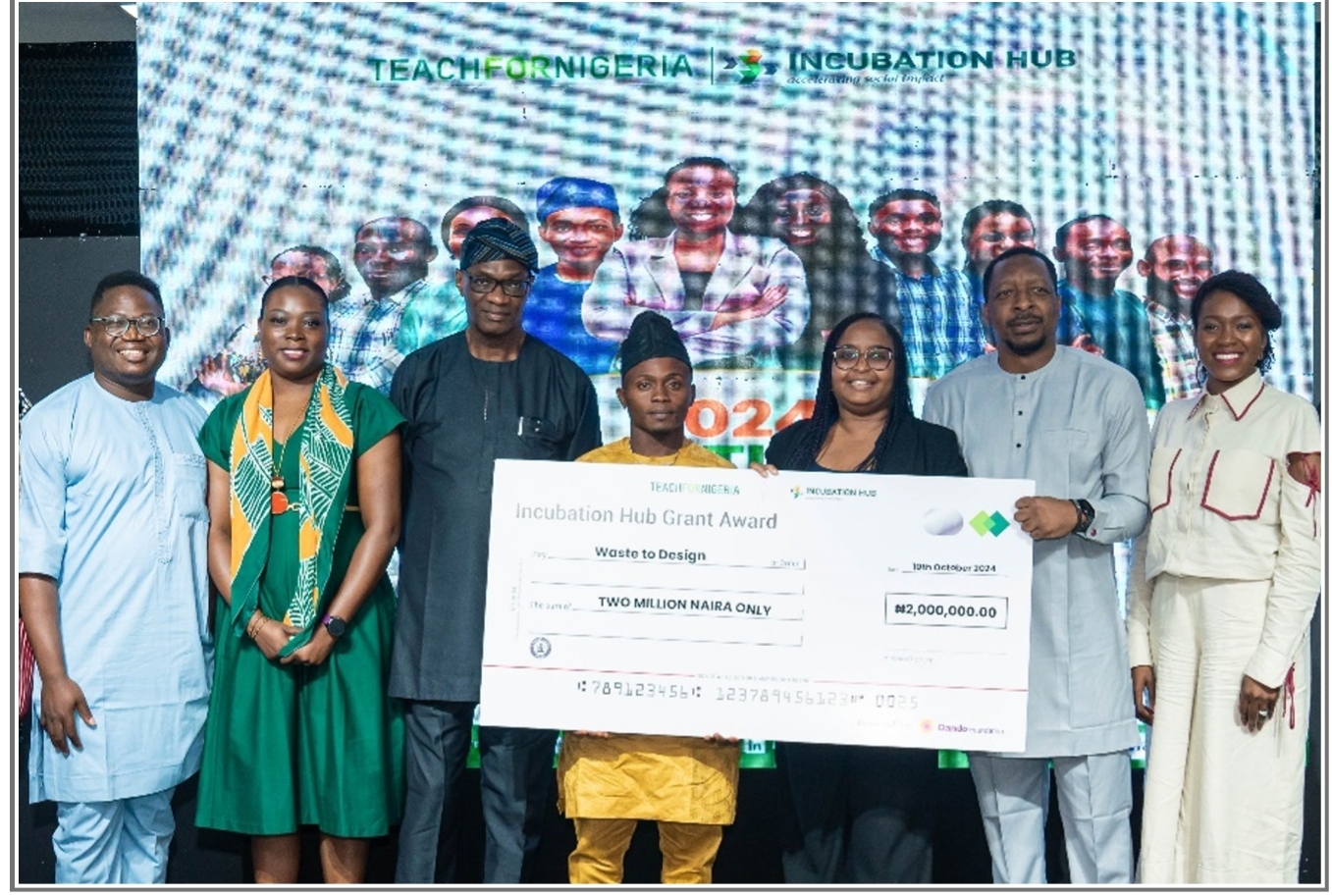
Reflecting on his achievement, Collins remarked, “Receiving this grant from the Oando Foundation is more than just financial support—it is a testament to the foundation’s confidence in our mission to address some of today’s most pressing challenges. Educational inequity and environmental degradation are issues that demand innovative solutions, and that is where Waste to Design Creation steps in. Our goal is to transform plastic waste into interactive learning tools and classroom designs by upcycling and recycling them. With this grant, we are empowered to create a greater impact by enhancing student engagement, encouraging hands-on learning, and improving academic performance in underserved communities. This support allows us to reach more schools, promote sustainable practices, and show how waste can be turned into something that inspires creativity and learning.”
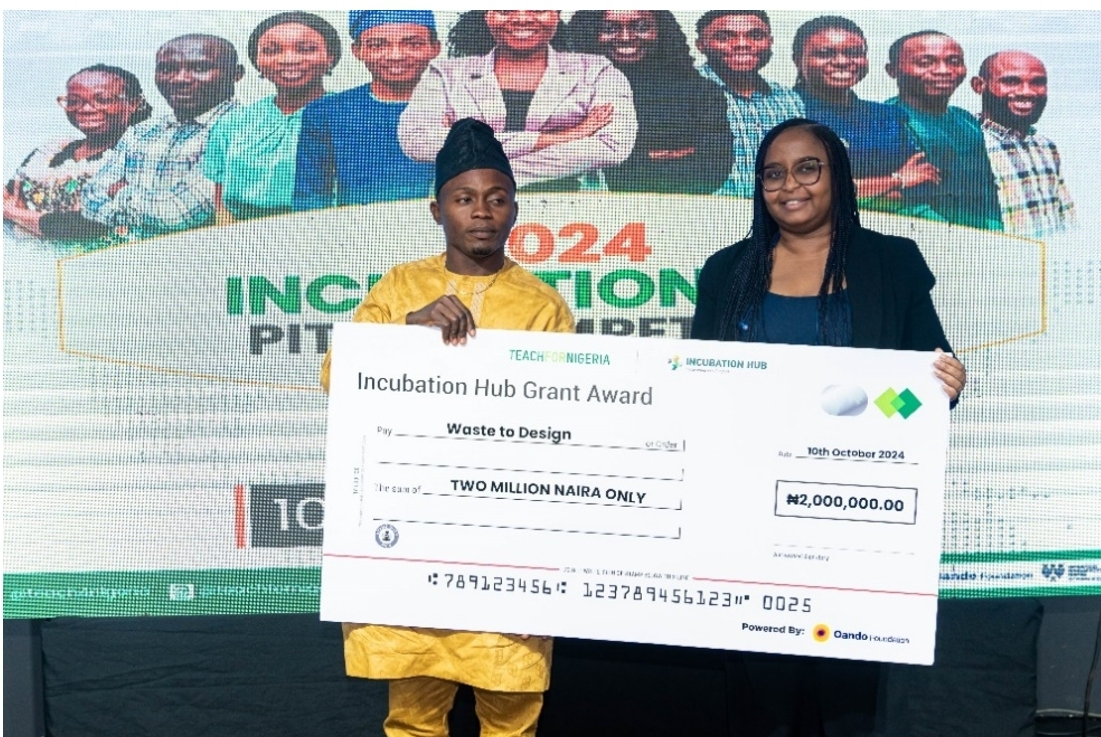
Like Collins and others impacted by Oando Foundation’s initiatives, young innovators across Nigeria are increasingly empowered to drive positive change within their communities, turning local challenges into opportunities for sustainable development. Through this partnership, Oando Foundation is fostering a new generation of social innovators committed to solving Nigeria’s most pressing issues. By integrating education with environmental action, the Foundation’s work is creating a ripple effect of positive change in communities across the country.
Add a comment
